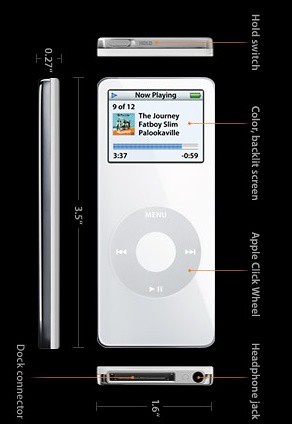Firefox, Opera, and Internet Explorer
Generally I've used either Netscape Navigator or Mozilla Firefox as my preferred browser. Both are free downloads; Navigator comes with a suite of other applications that have occasional usefulness, as, for example, Composer (HTML editor). Firefox is similar, but includes a number of interface improvements I hold in high esteem.
The Mozilla Foundation is an organization that promotes open-source software. Oddly, the non-profit organization owns the for-profit* corporation, Mozilla Corporation (since Aug '05), that actually develops the browser Firefox and the e-mail client Thunderbird. Firefox was released Nov '04 and has been downloaded 90 million times. Like Netscape's Communicator Suite, Mozilla's Suite includes an HTML editor. The source code for the editor, browser, email client, and news reader are all taken from Netscape's products, although Mozilla has substantially improved it. In fact, "Mozilla" was the original code name for Navigator, and was a contraction of "Mosaic Killer" (i.e., the original NCSA browser). The Mozilla staff are essentially the old crew of Netscape, which has been dissolved. Mozilla sourcecode is not only used in Firefox, but also Camino (for Macintosh).
Internet Explorer has stopped releasing new versions for some time; the main reason people like me have decided to abandon IE is its "Open X" component, which automatically installs programs when prompted by the webpage one happens to be visiting. Naturally, this exposes one to both obsolescence and viruses. Avant Force offers Avant, an interface layer on top of IE, which does stuff like support tabs; it is not a true browser. In addition, there are browsers based on the KDE Project's KHTML (Apple Safari) and on ODA (Opera Software Opera). Opera is designed to accommodate small screens, such as those on PDAs.
I was motivated to research these programs as a result of "Mozilla suffers growing pains" and "Firefox loses momentum" (The Register). The latter article has a totally misleading headline, IMO. It declares that Mozilla is running out of MS-IE "haters," but the text of the article explains that most of the competition is coming from Opera. The reason, in turn, that Opera is so successful is that Opera 8.0 (released April '05) was (a) targetted at the W-CDMA combatible cell phones being adopted en masse in the EU and NE Asia, this really requires the Opera browser. Moreover, beginning 20 Sep '05, Opera was availabe free without ads.
*Actually, Mozilla Corp. is not for-profit, but taxable. This article at the American Bar Association's website is pretty helpful in explaining the distinction. Basically, the difference is that a non-profit may have certain revenue-generating activities that it will farm out to a conventional corporation. The conventional corporation, being wholly owned by the non-profit, cannot be characterized as a "for-profit" since it necessarily shares the non-profit's mission. But it is taxable.





